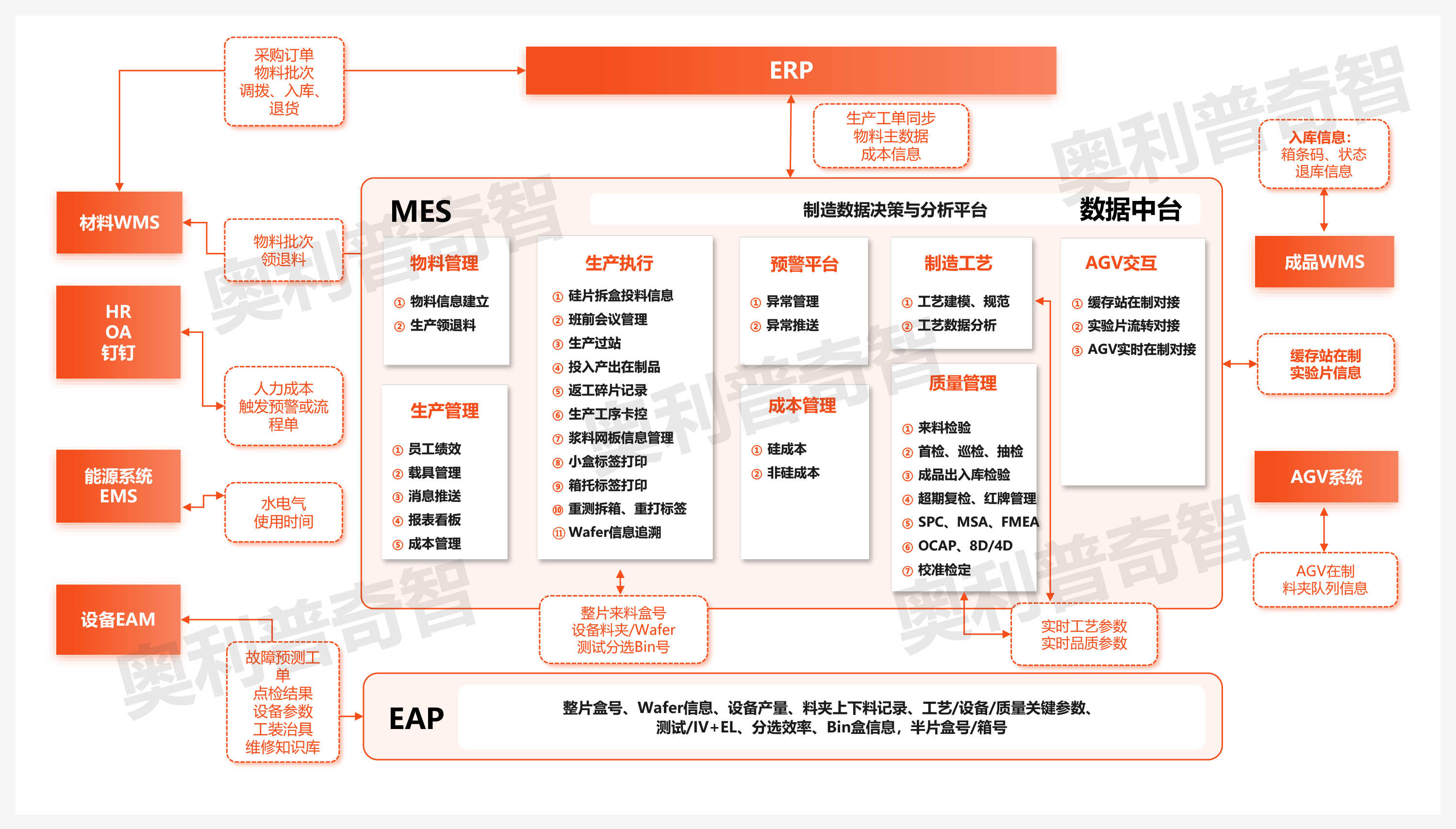-
Full-process intelligent control: Covers the entire production chain from silicon materials, silicon wafers, solar cells to modules, achieving AI process optimization and automatic control, significantly enhancing production efficiency.
-
High conversion efficiency and yield: Through intelligent detection and big data analysis, precise control of process parameters is achieved, reducing the fragmentation rate, and enhancing the photovoltaic conversion efficiency of the battery and the reliability of the module.
-
Flexible capacity adaptation: Supports rapid order switching and elastic capacity adjustment, enabling flexible response to market fluctuations and diverse product demands.
Green and low-carbon production: Integrating energy consumption monitoring and clean energy management to reduce production carbon emissions and comply with global green manufacturing standards.
-
Intelligent Operations and Cost Reduction: Predictive Maintenance Based on IoT Reduces Equipment Downtime, Optimizes Supply Chain and Inventory Costs, and Comprehensively Decreases OPEX.
Full life cycle traceability: Utilizing the workshop logistics WCS, EAP, and MES systems to achieve single-piece traceability for materials - production - quality throughout the process, enhancing product transparency and customer trust.
Solar photovoltaic

Advantages of the plan
Demand Insights
Scheme architecture
Based on MES + EAP as the core, we will build a manufacturing data decision-making and analysis platform for the photovoltaic industry. Through standard protocol interfaces between systems, we will integrate and launch information systems:
ERP, WMS, EAM, EMS, AGV, etc., enable single-piece traceability throughout the entire photovoltaic supply chain.

Typical Case

